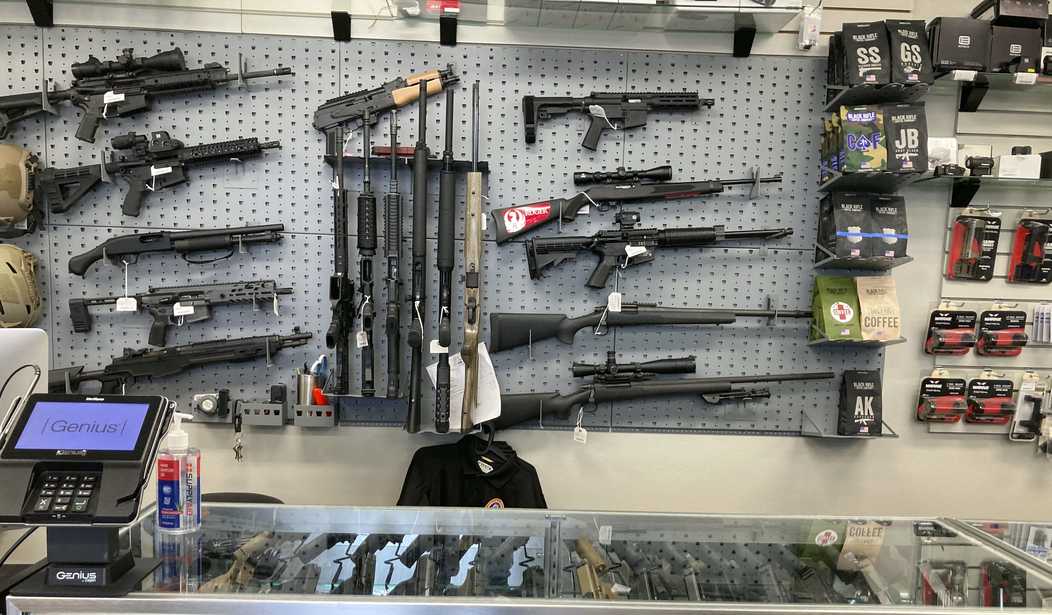Do Republicans in Congress really need to sit down and collaborate with their Democratic counterparts on a background check bill? I certainly don’t think so, and the vast majority of GOP congresscritters seem to be opposed to the idea as well, but former Fayetteville, North Carolina city councilman Bobby Hurst has penned an entire column fleshing out his extraordinarily bad idea, arguing that if Republicans don’t give in now, Democrats may pass something even worse.
While there is a lot we can disagree on regarding gun rights, we can make progress by focusing on what we do agree on, which is that we want to keep our families safe from people who should legally not be able to purchase firearms. The best way our elected officials can do this is to close any loopholes in current laws that allow felons to easily gain access to firearms.
This is where Congress comes in. A bipartisan group of Senators is looking at closing loopholes that allow strangers to sell guns to other strangers without a background check. Some might assume this is already law, but as it stands, only licensed dealers are required to conduct background checks.
While there is certainly a lot of room for error in any gun legislation, Sens. Thom Tillis and Richard Burr can fight to ensure that any agreement that is reached in the Senate closes loopholes without infringing on our Second Amendment rights. Thankfully, Sen. Pat Toomey, who is leading the negotiations on the Republican side, knows clearly that there are certain lines that cannot be crossed, such as requiring a background check when a father sells a gun to his son or daughter.
What is also clear is that if Republicans refuse to come to the table, Democrats will undoubtedly take any background check bill too far. With the filibuster under constant threat, and a Democratically controlled House, Senate and White House, it is more important than ever that Republicans stand up for our Second Amendment rights. The best way to do so is to support expanding background checks and by taking an active role in drafting any legislation on this issue.
That’s a really long way to say “I support the Second Amendment, but…”, isn’t it?
The most important reason why Hurst is wrong to suggest that Republicans find some sort of compromise with Democrats in order to stave off an even worse bill is simple; it won’t work. Republicans give a little now, and Democrats aren’t going to be satisfied with the result. Instead, they’ll rightly view the GOP’s surrender as a reason to press even harder. I mean, even in states where Democrats enjoy a legislative supermajority like California, they come back year after year with more anti-gun legislation, so why on earth would Hurst believe that caving in on universal background checks would sate the Democrats’ desire to go any further?
That’s not the only reason why Hurst is wrong, however. A universal background check bill could pass Congress with a unanimous vote, but it’s still not going to do anything to stop felons from getting ahold of a gun in violation of the law. As we’ve explained before, there’s simply no way to proactively enforce a background check requirement on private gun transfers. How would police know that these transactions are taking place? The simple fact is that they can’t, and we’ve seen the ineffectiveness of universal background check laws in places like Colorado, where violent crime has increased every year since Democrats imposed their own universal background check law on the public back in 2013.
If Republicans bending the knee on background checks won’t stop Democrats from pursuing their anti-gun agenda and won’t reduce violent crime, then what is the point of doing so, other than allowing squishes like Hurst to claim the mantle of bipartisanship?
How about this idea for reaching across the aisle instead: Democrats should come to the table and work with Republicans on strategies that focus specifically on violent offenders and felons; targeting them with strategies like Operation Ceasefire that both help those most at risk of committing and being victims of violent crimes to turn their lives around, while delivering serious consequences via federal prosecutions for those who continue to turn their neighborhoods into their own private shooting galleries? That would be both far more constitutional and more effective than what Hurst is suggesting, and while it wouldn’t stop anti-gun politicians from continuing in their quest to ban and arrest their way to safety, it would at least put the onus of enforcement where it belongs; on the relatively few number of violent criminals instead of the tens of millions of responsible gun owners in this country.









Join the conversation as a VIP Member